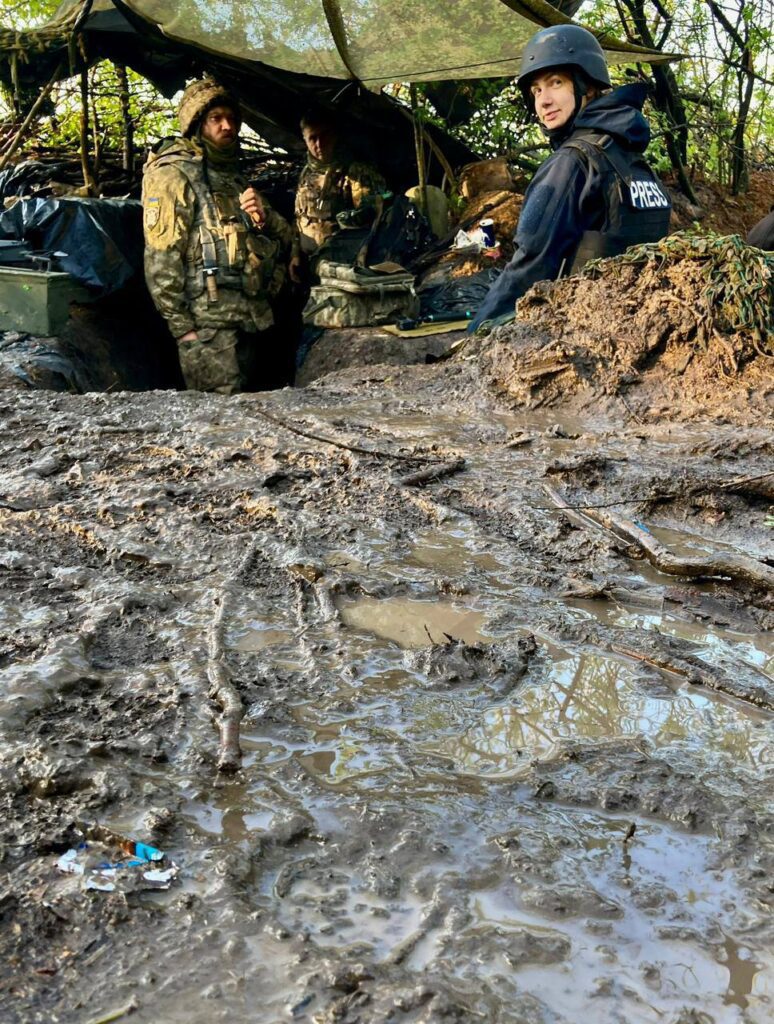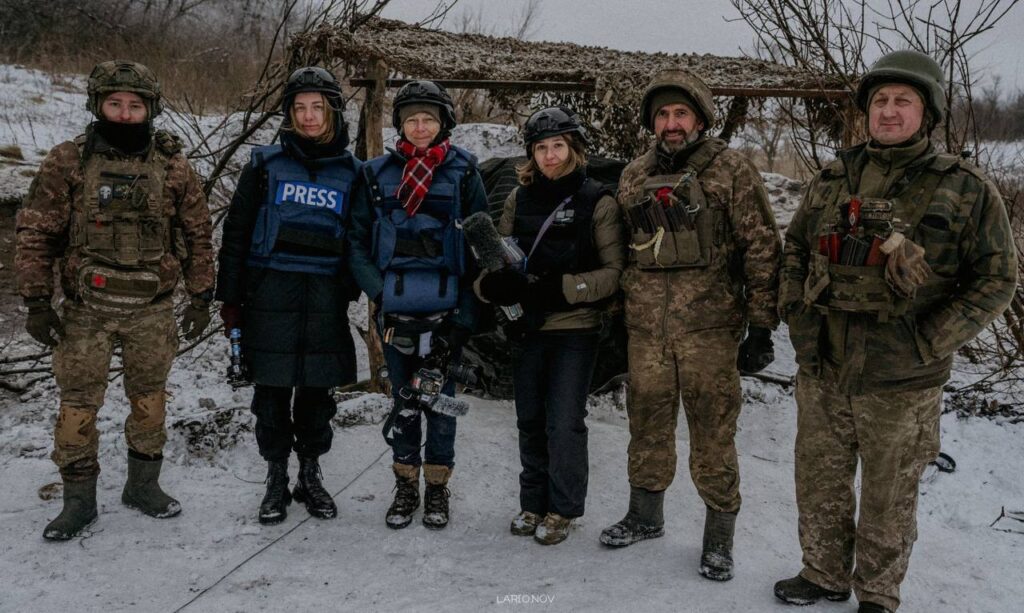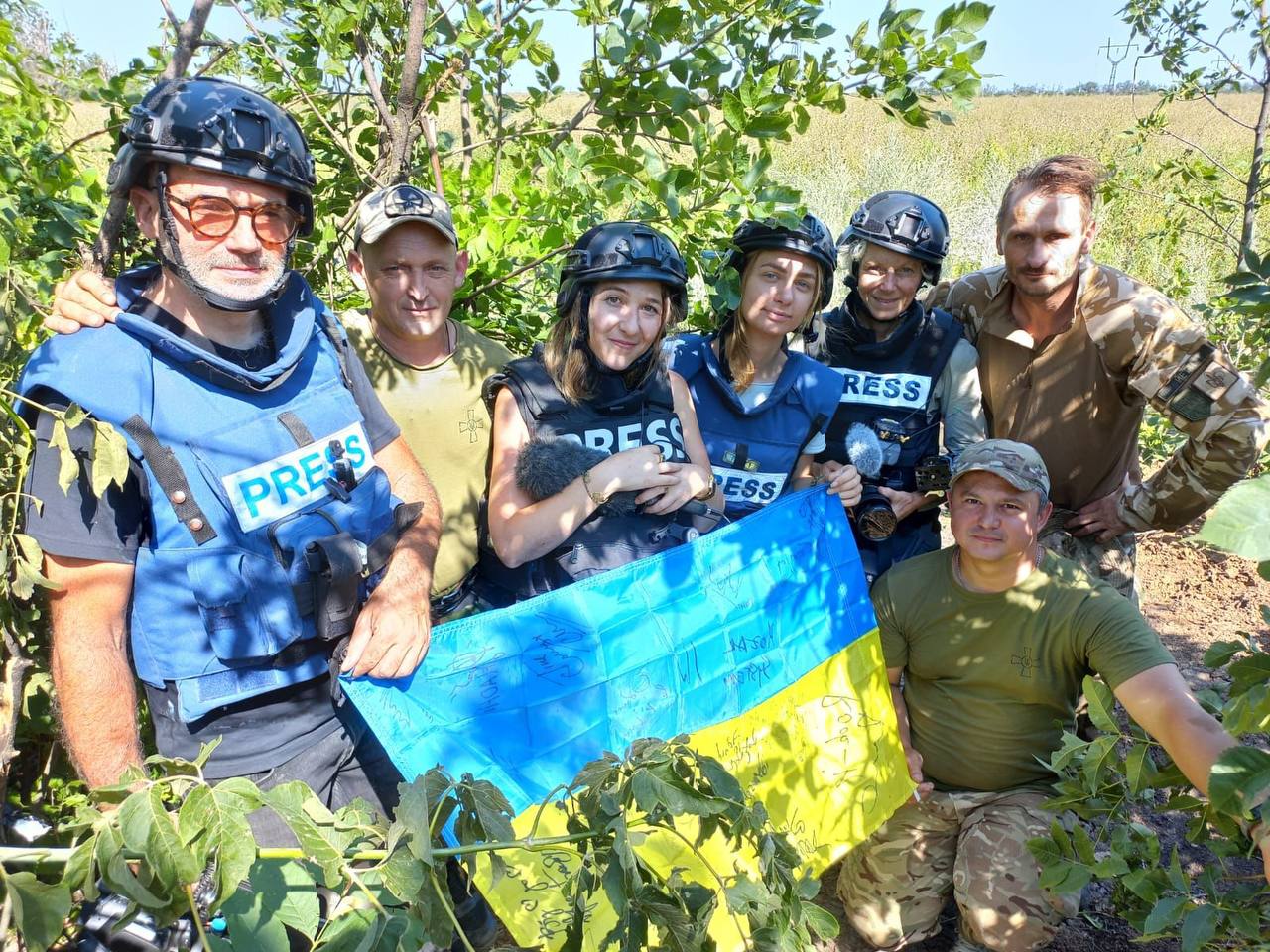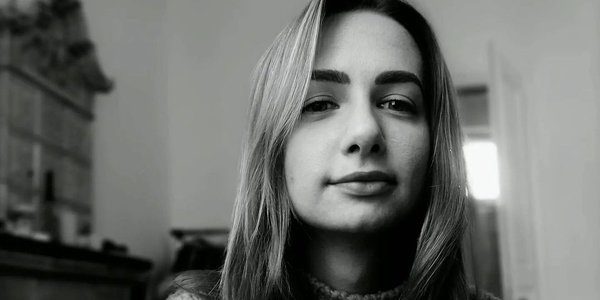On January 10, my colleagues and I were traveling from the Donetsk region and we planned to reach Sumy that night. However, we stayed longer in the Avdiivka area to work, and we realized on the way that we’d need to stop somewhere before Sumy. That stop turned out to be Kharkiv. There we always stayed at the same place—the “Park Hotel”. It had become our default location whenever we worked there or needed to spend the night. At check-in my two colleagues were still in the corridor while I went straight to my room. I opened the door, turned on the light, and suddenly, there was the first explosion.

It was a flash, and debris showered down everywhere. I felt blood running down my face and immediately realized what had happened. Thankfully, I was fully dressed, had my phone in hand, and could use its light to guide myself out into the corridor. I knew there would be a second explosion—I could hear my colleagues’ voices as we tried to regroup. Most people had already taken cover in the dugouts. The second explosion came, but thankfully, none of us were seriously hurt. We moved to the first floor, where they checked my injuries. I had glass shards embedded near my eyes and on my arms, and there were raised bruises (hematomas) that took about a month to heal. There was also a small, 2mm-deep fragment near the bone in my arm. Removing it would have been challenging due to the inflammation, so we decided to leave it. It doesn’t bother me now.

My colleagues were unharmed, and we evacuated the hotel through a window. Emergency services—medics and firefighters—had already arrived. Following instructions from our editorial office, we went straight to the subway and spent the night there, even when there were no alarms. Psychologically, the effects lingered for weeks. I didn’t experience severe conditions, but there was heightened hypersensitivity. I was easily startled and constantly dreamed of explosions, flashes, and apocalyptic scenes. My nervous system felt tense for a long time, though it gradually eased. What truly helped me was the support of friends and hobbies. Finding small moments of joy kept me grounded, even as the reality of war constantly intruded. It felt like chronic stress, requiring a chronic strategy to manage. Occasionally, I would have flashbacks. For instance, during air raid alarms in a hotel, I’d find myself thinking, “If it comes, it will hit me here”. Those moments would drive me to seek shelter. In addition to psychological effects, the physical toll was clear. I now have back problems—two protrusions in my thoracic and lumbar spine. I know the stress and constant travel, often sitting for long hours in cars, have contributed to this. I need to take a break and address these issues, but work often feels more urgent.

I started working as a journalist on the second day of the full-scale war. Before that, I had no journalistic experience—I had worked as a translator in film production and as a communications manager in an art institution. Initially, when a friend suggested I accompany a journalist visiting Lviv (where I was living at the time), I hesitated but eventually agreed. From there, my work grew through recommendations. Since November 22, I’ve been working almost exclusively with French television—France 2 and “France Télévisions”. Before that, I worked with various English-language media, mainly print. Journalism wasn’t something I expected to find myself doing, but it feels deeply meaningful and like exactly where I’m meant to be. Even the attacks on the hotel—this one and another on December 30 at the Park Hotel in Kharkiv—highlight the risks journalists face. I believe these locations were targeted because the Russians knew journalists, international organizations, and aid workers stayed there. It’s a stark example of their attempts to intimidate and terrorize, aiming to discourage journalists from reporting. Despite this, I know how important it is to keep telling these stories. The Russians understand this too, which is why they try so hard to silence us.

Created as part of the project “Raising awareness among target groups in Ukraine and abroad about Russian war crimes against journalists in 2024 and increasing public pressure for the release of captured journalists”, which is implemented by the National Union of Journalists of Ukraine with support of the Swedish non-profit human rights organization Civil Rights Defenders.

 THE NATIONAL UNION OF
JOURNALISTS OF UKRAINE
THE NATIONAL UNION OF
JOURNALISTS OF UKRAINE
















Discussion about this post